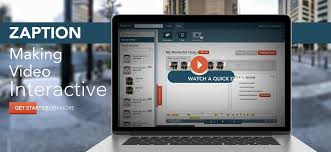Spent Thursday at the Christchurch InterfaceExpo. These expo days are often about selling a product - BUT there were some great learning tools on display and demonstration.
Frances Valentine - Founder MindLab - NZ Tech Board - was one of the opening speakers. The aim of Mind Lab is to create innovative kids of the future. Last year 12,000 students went through each of their 3 'workshops'. This year they are hoping for 30,000.
One key message was that we have a fantastic primary school system. A system that 'does' learning well - student focussed, contextualised, project based - then they hit secondary!! Secondary teachers are having to cope with the 'tsunami' effect of these primary students flowing into the secondary system!
She noted that even traditional careers are being influenced by new changes - eg 'big data' - medical outsourcing ?
Mind Lab - is partnered with Unitec to deliver a PostGraduate Programme - philanthropic support to keep costs down - $750 for post grad programme. Looks good to me!
Excitingly - won $1000 staff PD voucher! Checkl out The MindLab - here
Excitingly - won $1000 staff PD voucher! Checkl out The MindLab - here
2) The GAFE team - clearly reminded us that online /blended / elearning focusses on the 5Cs-
Communicate
Collaborate
Create
Consume
And that teachers need to ensure that they are making best use of GAFE by making sure that students have -
- customised chrome experience
- automatic web pages
- enforce bookmarks URLs
- chrome web store - apps and extensions
At RHS we use Google Sites for teacher portfolios and appraisal - this presentation was a good reminder to me that Sites can be key for-
- developing digital communities of practice
- increase student agency
Clearly we need to use Sites for more than just teacher inquiry in fact any opportunity for divergent thinking via individual creating - could be Site based
Learn Create Share
As school leaders we also need to remember that the 'pedagogical experts may not be the technological experts' - pedagogy 2.0 and 3.0 - new pedagogies need to be taught
Google Classroom and Blogger
Blogger as a portfolio - teacher, student, class
Importance of linking to RTCs
Student blogging - authentic digital footprint, student led conferences
3) ETV - while I have delved in to ETV and 'archived' a few really useful clips, I have not used them in the classroom yet!!
3) ETV - while I have delved in to ETV and 'archived' a few really useful clips, I have not used them in the classroom yet!!
I liked ETV's 'tagline' of 'real time, real life, learning resources'
- in the cloud - no software, no boxes
- biggest supplier of video content in NZ
The fact they when contacted, they will search for ANY resource to assist you with ANY topic you want to work on.
The fact they when contacted, they will search for ANY resource to assist you with ANY topic you want to work on.
BUT - what we do need to get onto using is their ZAPTION app
- research simply pointing students to a piece of video does not work
- students bombarded by 'noise' - they need to interact with content
- Bill Gates education award winner -
- wrap learning around the video content - easy to use and many ways to engage students

4) N4L - making our schools safe online....
- we need to know that it will work and work safely
- apparently our schools are under attack from overseas locations - thousands of times a day...who knew???
So I have bitten the bullet and signed up to the Pond, which seems to me to be another aggregator - I already use Delicious and Twitter and Google alerts ......
So I have bitten the bullet and signed up to the Pond, which seems to me to be another aggregator - I already use Delicious and Twitter and Google alerts ......
5) By 3.00pm my brain was starting to hurt - but not enough to stop me buying (well Josh actually buying) a SWIVL - robot controlled camera - track as you move, insert content during the lesson, 360degree, tracking, can be paused, stored in the swivl cloud, can include slides and still record lesson in action. I have it on very good authority that it is excellent for tracking evidence in the PE clasroom - but for me the most useful use, would be for teachers to view their own practice.
You can see more about how it works here http://www.swivl.com/
OK - enough new things to be think about ....and try out....and find the time to ......
You can see more about how it works here http://www.swivl.com/
OK - enough new things to be think about ....and try out....and find the time to ......

